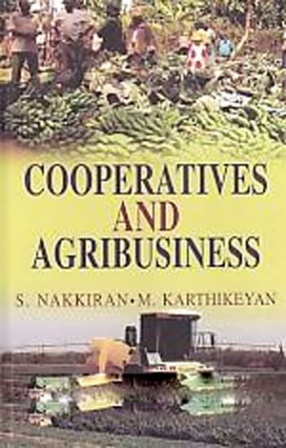The papers in this volume, presented at two national seminars, organized by the Department of Psychology, Deen Dayal Upadhyaya Gorakhpur University under its DSA programme, seek to address vital issues pertaining to environment and human development. Focusing on the theory of psychological differentiation in the context of environmental cognition, they emphasise on culture and cognition giving attention to rural and urban settings. They also discuss the impact of socio-cultural settings of stories, relationship between environmental needs and family atmosphere, environmental needs and family atmosphere, environmental stress, problem of crowding and fundamental inconsistency between what people think, believe and perceive about environment and what environmental behaviour they exhibit. The deliberations also include human development research in India, ethnotheories of development, relationship between psycho-social environment created at home due to chronic illness of the child and some cognitions of the mother and child’s behaviours, the problem of feedback and the development of competence in an educational setting, and the problem of elderly persons.
ABOUT THE AUTHOR Adesh Agarwal
Adesh Agarwal is Professor and Head of the Department of Psychology at D.D.U. Gorakhpur University, Gorakhpur. She started her university teaching career in 1963 at Lucknow University, but later moved to Gorakhpur University. She was also research associate at Florida State University, Tallahassee, U.S.A., and Ottawa University, Ottawa, Canada. She has published extensively in foreign and Indian journals in the areas of human motivation, time perspective, personality, human development, applied social and health psychology. Research students have done doctoral work under her guidance in all these areas. She has contributed to edited volumes like Cognition and Culture: A Cross-cultural Approach to Cognitive Psychology (Ed. J. Altariba), Motivation and Affective Processes (Ed. A.K. Srivastava), Contemporary Games (Ed. C.H. Adair). She is also author of several books like Achievement Motivation and time Perspective, Two Simulated Enquiry Environments: A Social Simulation, Game and a CAI Based Information Retrieval System. She is also Member of Executive Committee of National Academy of Psychology, India. Under her leadership, Department of Psychology has received the coveted Special Assistance Grant from University Grants Commission and is running the D.S.A. programme very successfully.
ABOUT THE AUTHOR Ashok Kumar Saxena
Ashok Kumar Saxena (b. 1948), M.A. (1967, Gorakhpur, First Position), Ph.D. (1979, Gorakhpur) studied the problems of hostility and alienation in university students, delinquents and prisoners. In an I.C.S.S.R. project formulated Alienation-Aggression hypothesis which is a better explanation than Frustration-Aggression hypothesis. Constructed Saxena Hostility Scale, co-author of text books and member editorial board of journals, has made research contributions in the areas of verbal learning, Psycholinguistics, creativity, self-disclosure, self-evaluation, perception of authority and social responsibility. As an Applied Psychologist, did Radio-counselling and brainstorming sessions. The problems of distress in widows and rural poor received his exploratory attention. Distress by natural disasters is his current concern. A committed advocate of Indian Indigenous Psychology is busy developing “Parasuram Syndromeâ€.



There are no reviews yet.